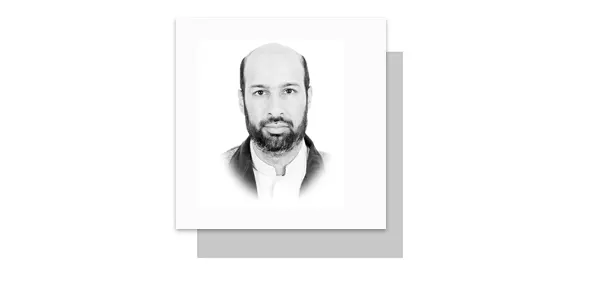Pakistan’s current development and security landscape
THE current political unrest in Pakistan is causing a stir in international and local media, with predictions being made regarding the doom of the country and its economic and socio-political set-up. A bird’s eye view of the current scenario lays credence to the fact; the economic landscape is becoming gloomy day by day, major business operations are seeking help from the government to get subsidies due to lack of production and many businesses are altogether closing. However these symbols of rapid economic decline, inflation and lack of opportunities are not limited to Pakistan alone. It is a global phenomenon and is the result of multiple factors, as COVID-19, the Ukraine war and the subsequent socio-economic insecurity and instability along with food insecurity. However, the difference is the way these crises are handled in developed and developing countries. In developed countries these economic hiccups are managed through policies which help the public and private sector along with the masses to control the surge in commodity prices and provide alternative measures.
The problem with the countries of the global south is the lack of management which results in further exacerbation of the crisis. This lack of control then transforms into a vicious circle, which consumes the resources of the State without any positive outcome. The terms of the loans of the international economic organizations as the IMF and World Bank, become a part of the problem rather than providing a solution, as these organizations don’t grasp the inner workings of the economic system of developing countries.
Given the current circumstances, Pakistan needs to have an alignment in all of its political, bureaucratic and military circles. This unison is the need of the hour and the key for managing to control the looming crisis of the country be it on the economic, social, environmental or institutional domains. According to Clausewitz, to fight any war three aspects come in the forefront, in terms of its execution first is the primordial violence of its nature, the hatred and enmity which must be regarded as blind instinct which he describes as the passion of the people. So in order to fight a war the support of the masses is necessary for purpose of winning. The second aspect is the interplay of probability and chance which make war a free activity of the soul, coming from the military.
The third aspect is identified as the subordinate nature of the political tool through which war becomes subject to reason which, in other words, depicts the role of the government. According to Clausewitz, these three elements have to work in harmony to win any war, i.e. the people (masses), the government and the military. In case of Pakistan this maxim holds truth as the country is facing multiple crises in terms of social, economic, food, water and environmental insecurity. These issues need to be dealt on a war footing and this war can only be won if there is a complete unison of the government, the military and the masses and an agreement to resolve these problems. The current divide between the military, civilian and the masses needs to be addressed keeping in view Clausewitz’s approach of winning a war; in Pakistan’s case it is the war to save the country from crisis coming in various forms. This is the only way to resolve the current façade and time for action is very short.
In addition, in the present day world, development is becoming more and more linked to the social and economic security of the states; increased security leads to increased development and conversely increased development leads to increased security (security referring to social, economic and environmental). In the same vein underdevelopment leads to insecurity and conflict thus resulting in creating rifts between states and societies. This becomes more critical when it comes to fragile states, having a weak institutional structure and poor governance mechanisms. In case of social dissatisfaction and insecurity, conflict becomes ripe and there is mass migration resulting in brain drain and lack of foreign investment, tourism and economic collaboration.
A strong state and society relationship on the other hand results in creating suitable conditions for socio-economic opportunities and good governance mechanisms and strong institutional structures help attract foreign and human capital. The resolution of the internal strife through institutional coordination and better civil military relations can play an important role in improving the development and security landscape of the country. Now is the time to take the step in the right direction; the road ahead will be bumpy and there will be a lot of challenges ahead, however, this should not be the excuse to back track from the intricate path of development and prosperity.
—The author is a Defence and Security expert based in New Zealand.
Email: [email protected]









